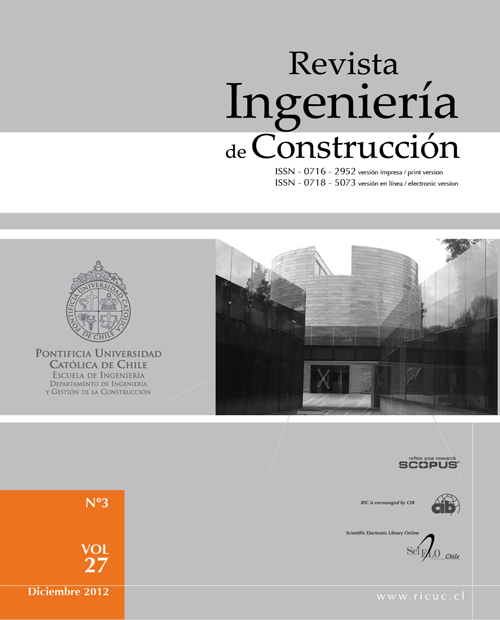Numerical modeling of the simple concrete with finite elements by means of the plasticity theory and yielding function of Hu and Schnobrich
DOI:
https://doi.org/10.4067/S0718-50732012000300002Keywords:
Plasticity constitutive models, computational mechanics, finite elements method, simple concreteAbstract
This article describes the formulation, implementation and validation of a constitutive model in the finite element method, which it represents the mechanical behavior of plain concrete subjected mainly to compression, considering the plane stress state and infinitesimal strain. This model is based on the general formulation of the theory of plasticity (Simó & Hughes 1998), considering a non-associated flow rule, where the plastic potential is defined by the failure criterion and von Mises and yield function corresponds to empirical approaches developed by Hu and Schnobrich (1989). An implicit algorithm of numerical integration was formulated to solve the nonlinear problem given by the material constitutive model. The constitutive model presented in this paper was implemented in the nonlinear analysis finite element program with open source HYPLAS (de Souza Neto et al. 2008) and the post-process was performed using GiD (CIMNE 2008). Finally we present the comparison of the structural response of panels subjected to forces contained in its plane tested experimentally by Kupfer and others (1969), against the numerical simulation using the proposed model. Also an application example of the proposed model to the beams simulation subjected to bending was presented.


